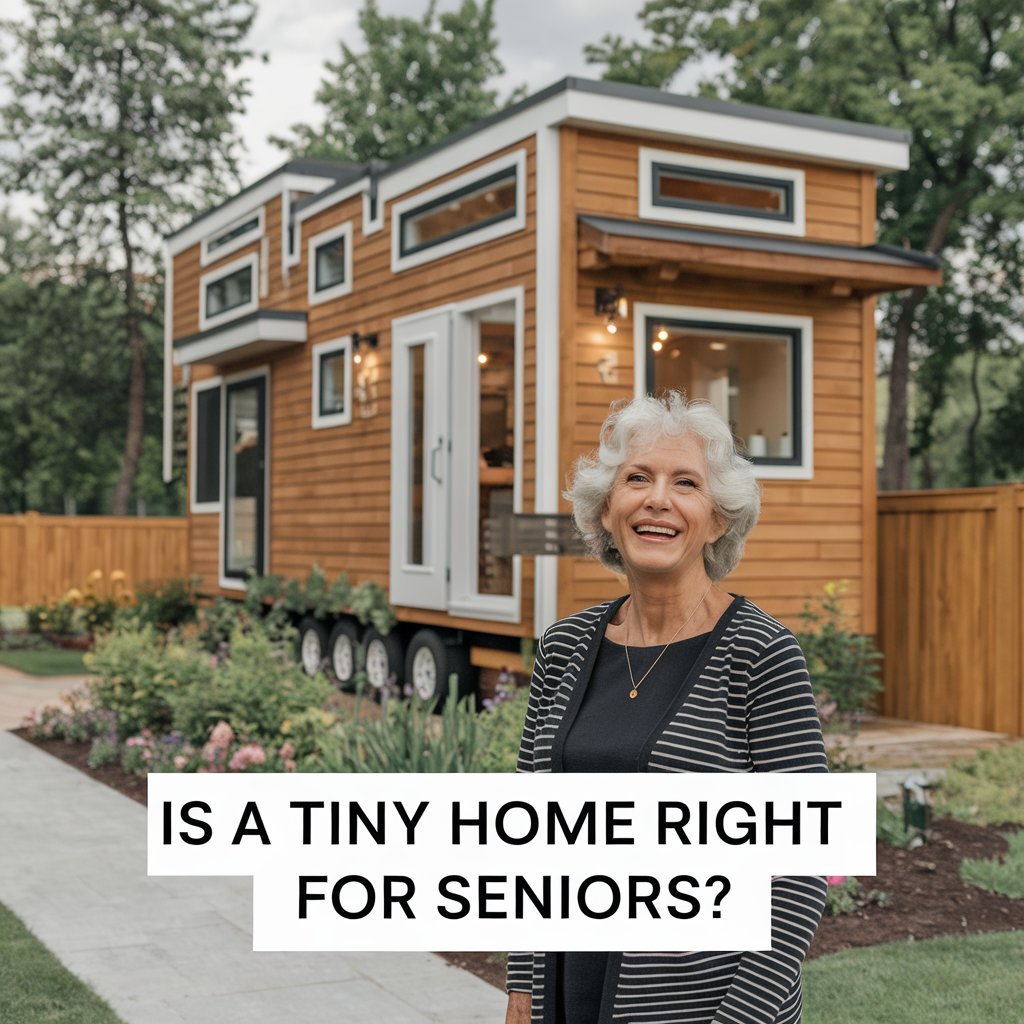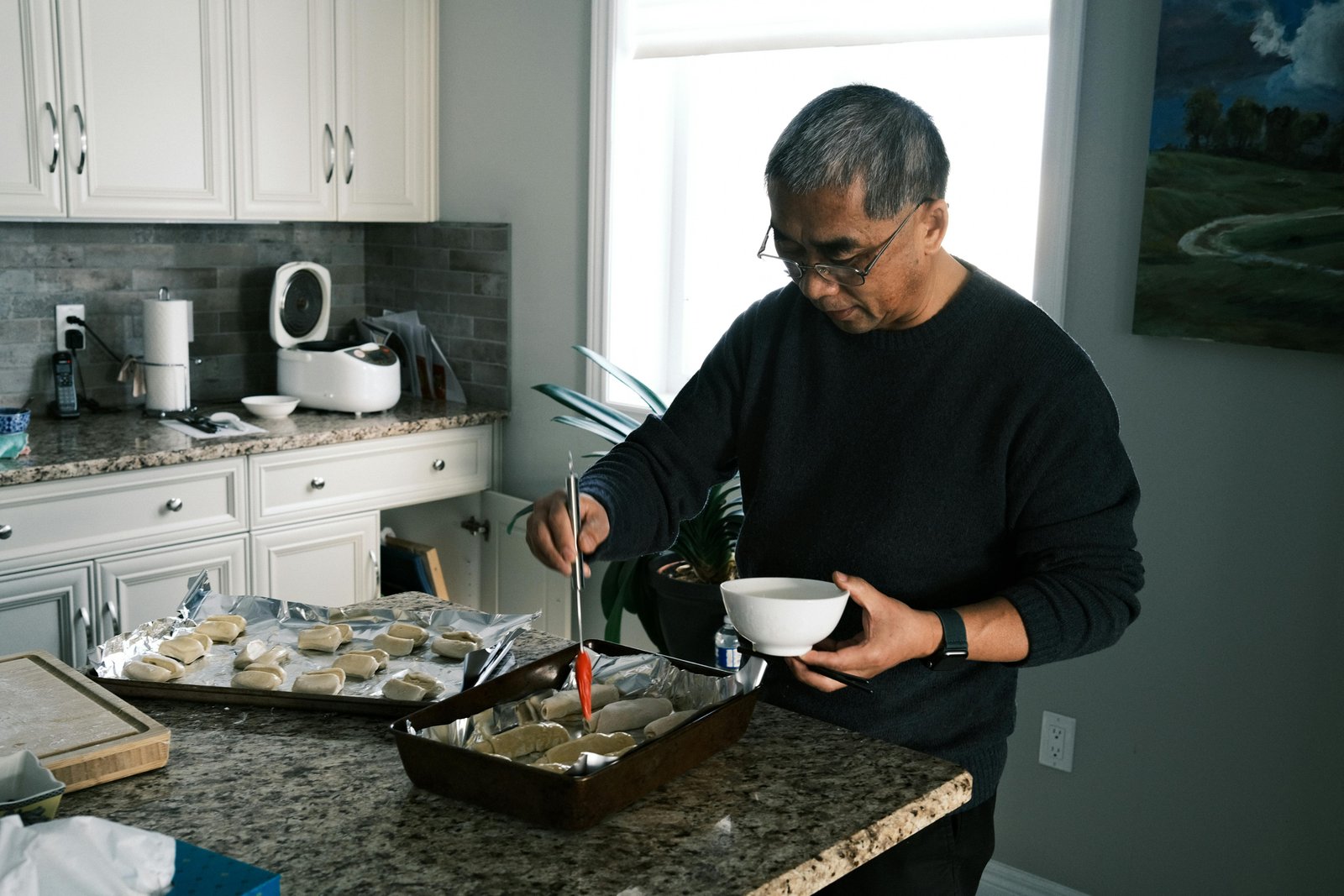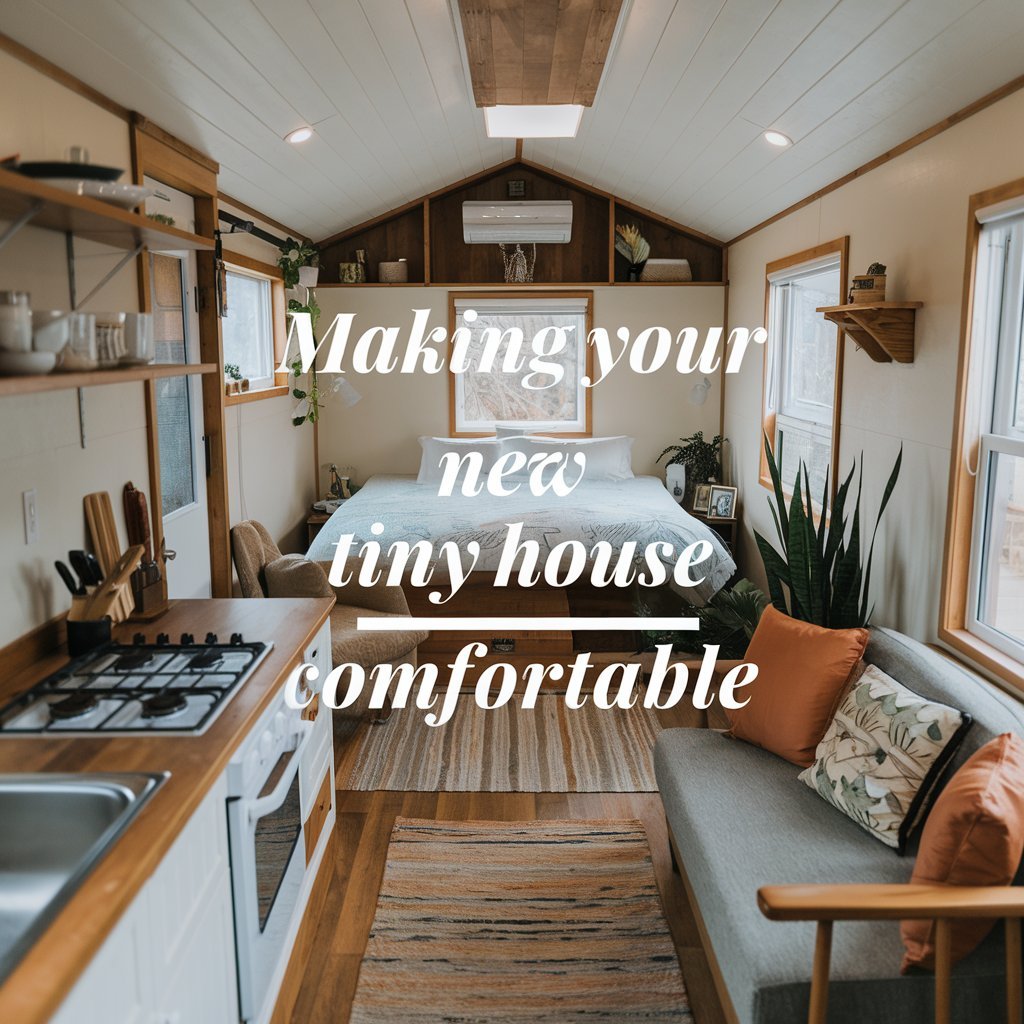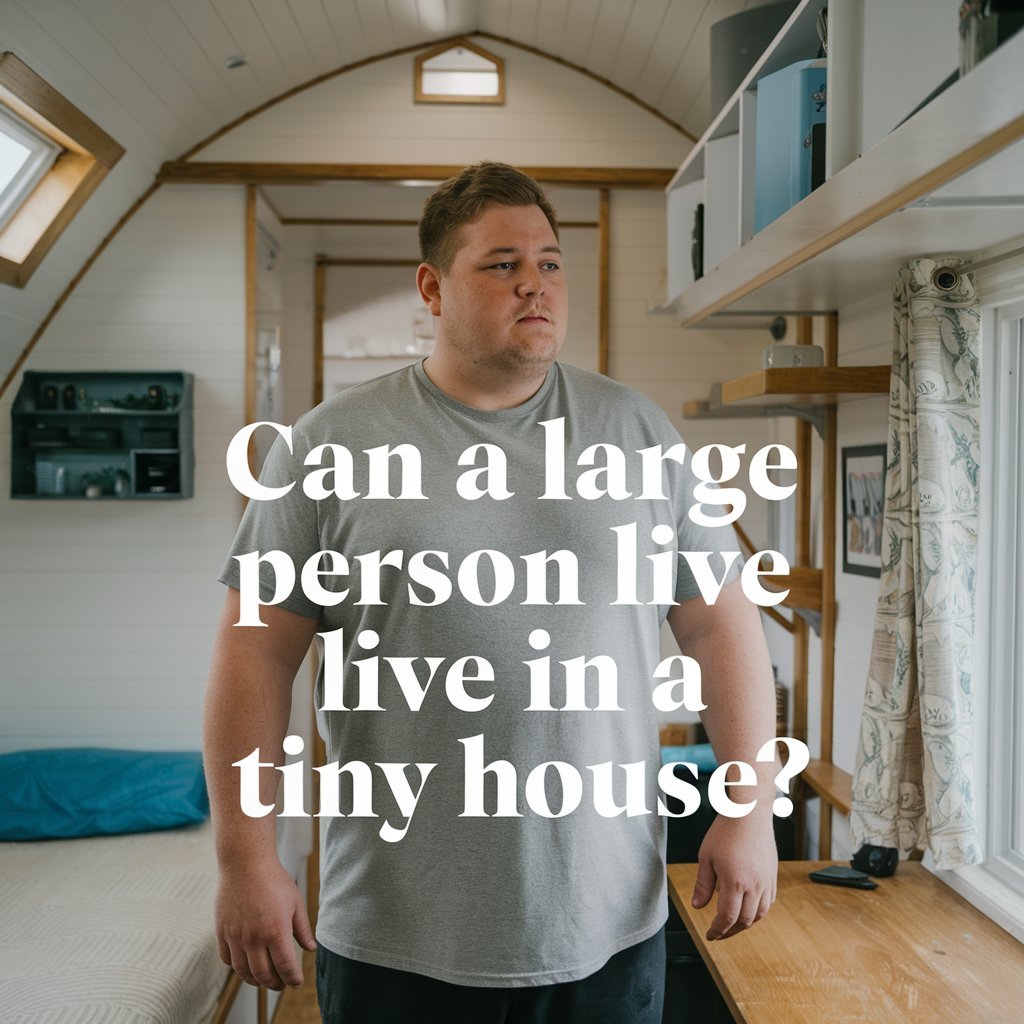Key Takeaways
- Evaluating the Appropriateness of Compact Residences for Older Adults
- Benefits of Small Retirement Dwellings
- Investigating the Idea of Minimalist Living Spaces
Is A Tiny Home Right For Seniors? | Examining the Suitability of Tiny Homes for Seniors
The question of whether a tiny home is right for seniors hinges on various factors that cater to the unique needs of older adults. Many senior citizens are exploring the tiny house movement as a viable alternative to traditional housing options like nursing homes or assisted living facilities. Tiny homes can provide affordable housing solutions, allowing homeowners to downsize and embrace a simpler lifestyle. By opting for a tiny house, older adults can enjoy aging in place while maintaining homeownership without the overwhelming burden of maintenance typical of larger homes.
These compact spaces can be designed with accessibility in mind, enabling seniors to adapt their living environments according to their needs. Whether for those seeking a starter home or for individuals transitioning from mobile homes or modular homes, tiny houses offer a blend of comfort, community, and flexibility ideal for aging seniors.
- Accessibility features can be easily incorporated into tiny homes.
- Lower utility costs can significantly reduce financial stress.
- A smaller footprint encourages minimalism and reduces clutter.
- Many tiny home communities foster a sense of belonging and social interaction.
- Maintenance and upkeep are generally easier and less time-consuming.
- Tiny homes can be located in serene environments, promoting relaxation and well-being.
- Flexibility in location allows seniors to choose areas that suit their lifestyle preferences.
is a tiny home right for seniors? | Benefits of Downsizing to a Tiny Home
Downsizing to a tiny home can provide seniors with numerous benefits, including increased freedom and reduced expenses. Accessory dwelling units such as granny units or cottages allow for creative use of space. Multifunctional furniture, like sofas that convert into beds, can maximize living areas in a cozy environment. According to the Joint Center for Housing Studies and the National Association of Home Builders, these compact dwellings can enhance longevity by promoting a simpler lifestyle. A tiny house with a well-designed sitting room or porch creates inviting spaces for gatherings with family, fostering community connections.
The financial advantages of moving into a tiny home can significantly impact a grandparent’s retirement plans. Lowering housing costs might free up home equity, allowing seniors to invest in travel or hobbies that enrich their lives. Tiny homes often replace larger and more maintenance-intensive apartments or houses, making it easier for caregivers to manage. House Beautiful notes that many seniors find joy in the simple charm of a tiny house, where cozy living rooms become the heart of the dwelling. Such spaces not only accommodate daily living but also support social interactions, enhancing overall well-being.
Factors to Consider for Senior Living
Considering the suitability of tiny homes for seniors involves assessing various factors beyond just the size and cost. Tiny homes are ideal for retirement as they often feature single-level layouts, which can accommodate wheelchair access and reduce the risk of falls. Many tiny home designs offer flexible room options, giving tiny home residents the ability to create an additional bedroom, or even a small office, to suit their lifestyle. Companies like the Tumbleweed Tiny House Company provide a range of prefab homes that can be customized for senior needs, directly addressing the question: is a tiny home right for seniors?

Social factors also play a significant role in determining if tiny home living is appropriate for older adults. Living in a tiny home community can foster connections that alleviate feelings of loneliness, providing a support network similar to that found in bungalows or traditional neighborhoods. Tiny retirement homes often encourage interaction among tiny home owners, promoting active engagement in the community. This social aspect is essential for maintaining mental well-being, especially for seniors transitioning from more isolated living arrangements or nursing care facilities.
Advantages of Tiny Retirement Homes
The tiny home lifestyle offers several advantages for seniors considering a shift from traditional living. Downsizing to a small home often leads to improved financial freedom, as tiny homes generally cost less and reduce monthly expenses. Tiny homeowners can enjoy less maintenance, allowing them to focus on their well-being and leisure activities, rather than on upkeep.
The appeal of tiny vacation homes also extends to the possibility of travel, where tiny house vacations provide a unique experience without sacrificing comfort. For those concerned about community, tiny home communities foster connections among residents, offering social opportunities that enhance quality of life. As tiny home builders create designs that meet tiny home standards for accessibility, many find themselves pondering, is a tiny home right for seniors? This lifestyle promotes simplicity and freedom, making it an option worth considering for those looking to embrace tiny living.
Affordability and Financial Freedom
A tiny home can be an excellent option for seniors looking to downsize and achieve financial freedom. Many tiny homes are more affordable than traditional single-family homes, making it easier for seniors to transition from a larger family home. Tiny home rentals often provide a practical solution for those wishing to avoid the burdens of extensive mortgages. The reduced home size means lower utility bills and maintenance costs, which can have a significant impact on one’s budget, allowing for easier management of living expenses.

Finding the right tiny house build can also accommodate seniors’ specific needs and preferences. Tiny house builders often create designs that are accessible and user-friendly, ideal for seniors age 65 and older. Many tiny home websites offer customizable options that simplify senior living by providing amenities that support aging in place. These homes can foster independence while encouraging connection within senior living communities. Surprising to some, investing in a tiny home may lead to enhanced financial stability and greater freedom to enjoy life’s experiences.
| Tiny Home Model | Price Range | Size (sq ft) | Monthly Costs (Estimate) |
|---|---|---|---|
| Tumbleweed Tiny House | $40,000 – $80,000 | 150 – 400 | $150 – $300 |
| Mini Mansion | $50,000 – $100,000 | 200 – 500 | $200 – $350 |
| Escape Traveler | $60,000 – $120,000 | 250 – 500 | $250 – $400 |
| Classic Tiny Homes | $30,000 – $70,000 | 160 – 450 | $120 – $250 |
Simplified Maintenance and Care
Maintaining a full-size home can be a burden for many seniors. Downsizing to a diminutive home can significantly simplify this task. Compact homes often require less upkeep, allowing seniors to spend more time enjoying their lives instead of managing a large property. For elderly parents or active seniors, this shift to a one-level home or small apartments frees them from the responsibilities associated with larger spaces. Many tiny house companies cater to this demographic, providing new home options that feature accessible layouts and efficient designs.
The benefits of a tiny lifestyle extend beyond just manageable maintenance. Mini homes also promote a sense of organization and minimalism, which can be comforting for those transitioning from a larger residence. Tiny house builders understand the needs of seniors and often incorporate practical home features that enhance daily living. As tiny house nation continues to grow, many tiny house hunters discover that these square foot homes offer all the conveniences of full-size homes without the overwhelming demands of upkeep. Is a tiny home right for seniors? For many, the answer lies in the reduced maintenance and care required.
Exploring the Concept of Tiny Home Living
Tiny homes present a unique opportunity for many U.S. homeowners, especially as they consider whether a little house is a suitable option for their senior years. These spaces often encourage a lifestyle free from the burdens of a traditional home, allowing retirement-age owners to prioritize their well-being and financial freedom.
Many of these residences offer senior-friendly amenities, such as accessible homes with well-designed living areas and bedroom configurations. For low-income residents and first-time buyers, affordable starter homes often come in the form of tiny structures that can also accommodate in-home caregivers or provide separate elder cottages. The flexibility of these designs can be appealing, as they can serve as home offices or versatile living spaces that adapt to changing needs. Considering the question, is a tiny home right for seniors?, it’s vital to evaluate how downsizing can simplify life while maintaining comfort and community connections.
Community and Social Connections
Tiny homes foster strong community ties, making them an appealing option for seniors seeking companionship. Many residents of compact houses, such as small cottages or elder cottages, often engage in communal activities, which can enhance social connections. These living facilities can create a sense of belonging that is sometimes absent in traditional retirement living. With a close-knit atmosphere, residents find it easier to share experiences and support each other. This aspect makes one wonder, is a tiny home right for seniors?
The design of tiny luxury homes often promotes social interaction. Home builders frequently create shared spaces where homeowners can gather, reducing feelings of isolation that can accompany traditional homeownership. Whether enjoying a meal together or participating in group activities, tiny rentals provide opportunities for residents to connect. Custom-built homes can include features like a cozy common area with a five-foot sofa, making it inviting for gatherings. The affordable retirement dream becomes more achievable when one considers the community aspect of living in minim homes.
Flexible Design Options for Accessibility
Tiny homes offer a range of flexible design options that cater to the needs of seniors, making them an increasingly popular choice among retirement-age individuals. With features that promote single-level living, these residences can be designed as one-bedroom homes or tiny studios, providing a comfortable living space without the burden of unnecessary square footage. The kit home era has introduced various customizable layouts, allowing seniors to craft their ideal home environment. For Florida residents and others looking to downsize, these homes can easily incorporate home-like materials to create a warm and inviting atmosphere.
The concept of accessible housing extends beyond just physical design. Many multi-aging community projects now include small trailer homes and minka homes to accommodate diverse needs. These temporary housing options ensure that aging individuals can enjoy big living without compromising on comfort. Thoughtfully designed spaces with features like small desks and wider doorways can enhance mobility and promote independence. Is a tiny home right for seniors? The answer often lies in how the flexible design of these affordable residences meets the unique requirements of elder residents across the U.S. housing landscape.
Conclusion
Examining whether a tiny home is right for seniors reveals a growing trend among adventurous homeowners seeking affordable housing options that suit their needs. The tiny space of a unique house like a backyard cottage or a minim house offers a comfortable living experience without the burden of excessive maintenance. Housing studies highlight how these living options not only provide a primary residence but also foster community-oriented living spaces that enhance social connections.
Home buyers, particularly seniors, can benefit from various housing choices that prioritize accessibility and practicality, making tiny homes a viable option for those looking to downsize. The concept of escape homes resonates with many, as it allows for a simpler, more manageable living environment tailored to specific home features that cater to their lifestyle.
FAQS
How does tiny home care compare to traditional senior housing options?
Tiny home care offers an alternative to an assisted living facility for seniors who might need a more independent lifestyle. With tiny homes, seniors can enjoy single-floor homes equipped with all essential bedrooms and amenities. The tiny home simplifies living while still catering to the needs of seniors, making it a compelling option versus bigger homes or regular homes. Additionally, many tiny homes owners find that maintenance and home repairs are more manageable in a smaller space, making tiny home travel possible and practical. As tiny home reveals show, this approach provides a uniquely cozy yet functional space that meets the tiny home need for many seniors, offering a sense of community and independence that larger facilities may not.
Are tiny homes a good option for seniors looking for an affordable and manageable living space?
Yes, tiny homes offer a surprisingly attractive option for seniors looking to simplify their living situation. Compared to traditional senior housing options, tiny homes can be more affordable, allowing seniors to use their resources more effectively. Many tiny home experts emphasize how these small houses can provide a comfortable lifestyle with lower maintenance costs. Additionally, they can be designed to meet specific needs, acting as home care suites or accommodating visitors. Thus, tiny homes can be a practical choice for seniors seeking a smaller, more manageable living environment, making the transition from big homes to tiny houses easier and more efficient.
What are the benefits of choosing tiny homes for seniors compared to traditional housing options?
Tiny homes surprisingly offer seniors a simplified lifestyle that can be more manageable than traditional homes. When tiny home measures are compared to those of luxurious custom homes or even rural homes, many seniors find that the tiny home base can provide all necessary amenities while being more affordable. Additionally, tiny homes free up time for activities outside of maintenance, allowing seniors to enjoy their first home or a time—elder cottage without the burden of extensive upkeep, making tiny homes a viable option for senior living.
What are some unique features of tiny homes that may appeal to seniors?
Tiny homes offer a surprisingly– seniors-friendly environment, as they simplify living and provide a manageable space. With less maintenance, tiny home living frees up time for elders to engage in activities they enjoy. Additionally, tiny house experts highlight the benefits of home sits and how they often provide rental homes that cater specifically to senior needs. When considering a living example, many seniors find that tiny homes compares favorably to traditional housing options, making them an appealing choice.
How do tiny homes simplify the living experience for seniors compared to traditional senior housing options?
Tiny homes simplify the living experience for seniors by offering a downsized, manageable space that requires less maintenance and upkeep. This allows seniors to enjoy their independence while having a comfortable environment. In comparison, traditional housing options can often be overwhelming in terms of maintenance and costs. Furthermore, the tiny home offers a sense of community and security that many senior places provide, while also being a more affordable choice. The landscape of housing is changing, and tiny homes are becoming a popular option to cater to the needs of seniors, ultimately providing a great alternative to the traditional American home.
What factors should seniors consider when deciding if a tiny home is right for their lifestyle?
When evaluating if a tiny home is a suitable living situation, seniors should consider how a tiny home simplifies their day-to-day life. Many seniors find that a tiny home allows for easier maintenance and less clutter, making it easier for them to live independently. Additionally, tiny homes can be more affordable than traditional senior living options, allowing seniors to save money. Understanding how a tiny home compares to traditional housing options is crucial, as it emphasizes the unique benefits it offers to seniors in terms of space and financial management. Moreover, tiny homes can also serve as elder cottages, providing a comfortable option for independent living while staying close to family.
How do tiny homes free up time for seniors compared to traditional housing options?
Tiny homes simplify the living experience for seniors by reducing maintenance and offering efficient living spaces, which frees up time for other activities. This means seniors can spend less time on upkeep and more time enjoying their retirement. Additionally, the concept of tiny house living provides a practical alternative, allowing seniors to downsize without sacrificing comfort, especially when comparing tiny house versus larger traditional homes.
How do tiny homes work for seniors who want to simplify their lifestyle?
Tiny homes offer a unique living solution for seniors by providing a compact space that simplifies everyday tasks. The design of a tiny home frees up time—this allows seniors to focus on what matters most to them. Instead of managing a large house, seniors can enjoy the benefits of a cozy living environment that offers everything they need. As a result, tiny homes simplify the living experience, making it easier for seniors to maintain their independence and enjoy retirement.
How do tiny homes work for seniors in terms of simplifying their lifestyle and freeing up time?
Tiny homes simplifies the living experience for seniors by offering a more manageable space that requires less maintenance, which ultimately frees up time—allowing them to focus on enjoying their life. This approach ensures that the tiny house work doesn’t overwhelm them, providing comfort and convenience tailored to their needs, like elder cottages designed specifically for easy living.
Do tiny homes provide conveniences for seniors that traditional housing doesn’t?
Yes, tiny homes offer seniors a manageable living space that doesn’t burden them with excessive maintenance. They can free up time—allowing seniors to focus on leisure activities and hobbies. Additionally, the concept of elder cottages in tiny home communities fosters social connections among seniors, enhancing their quality of life.




